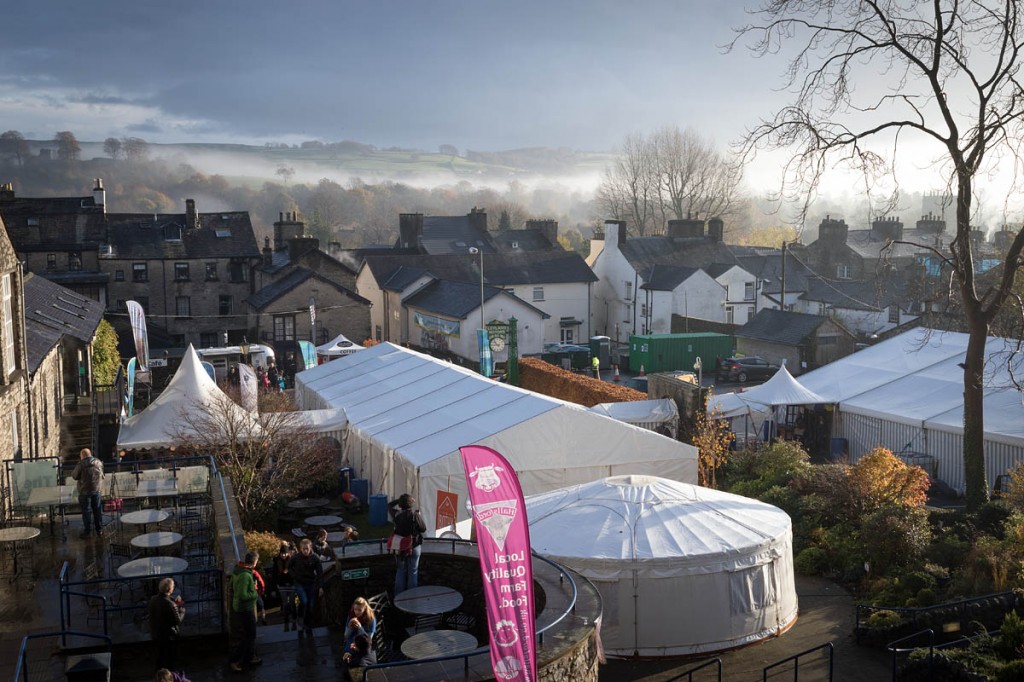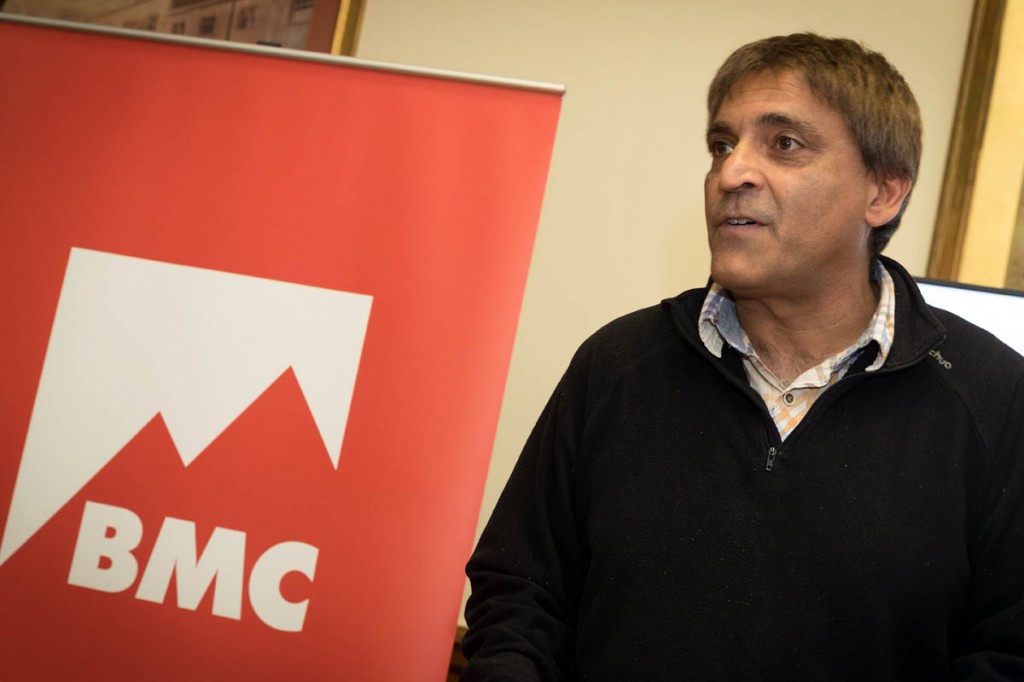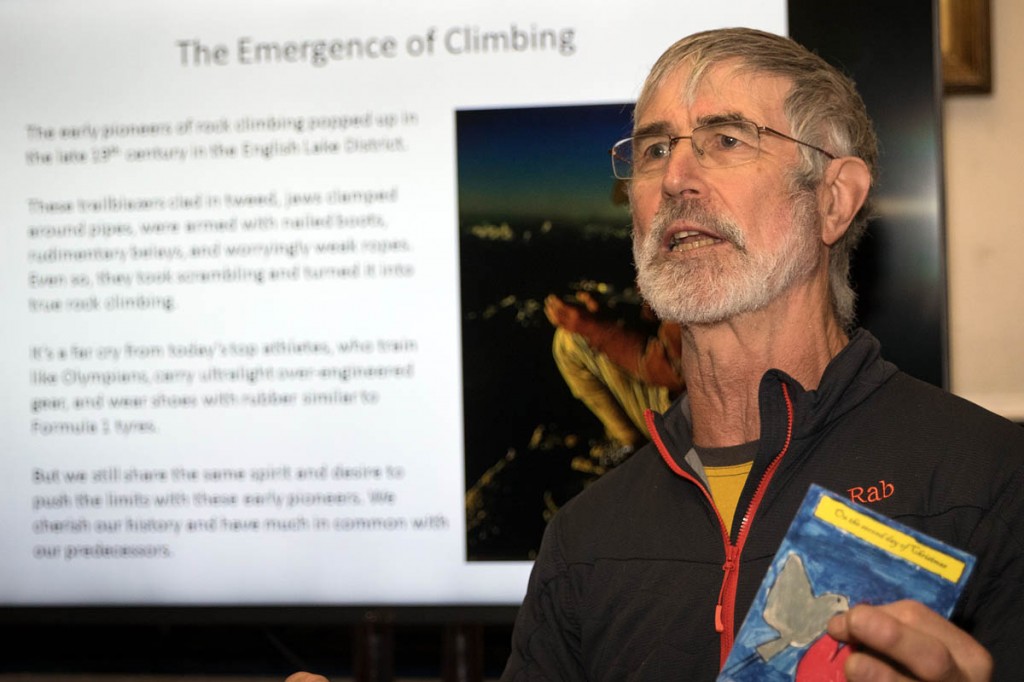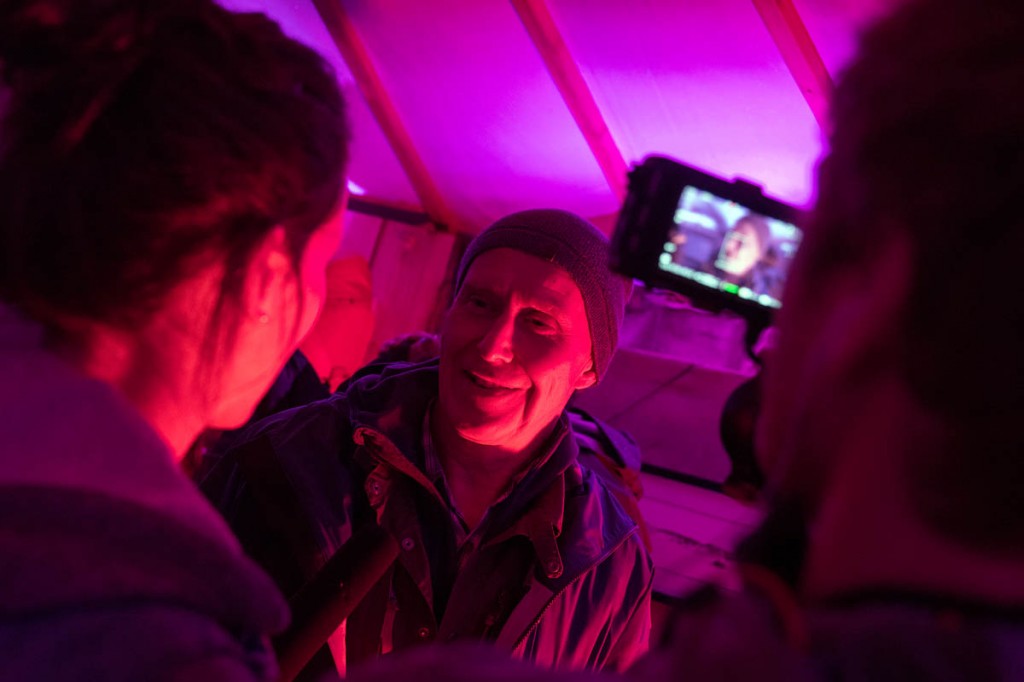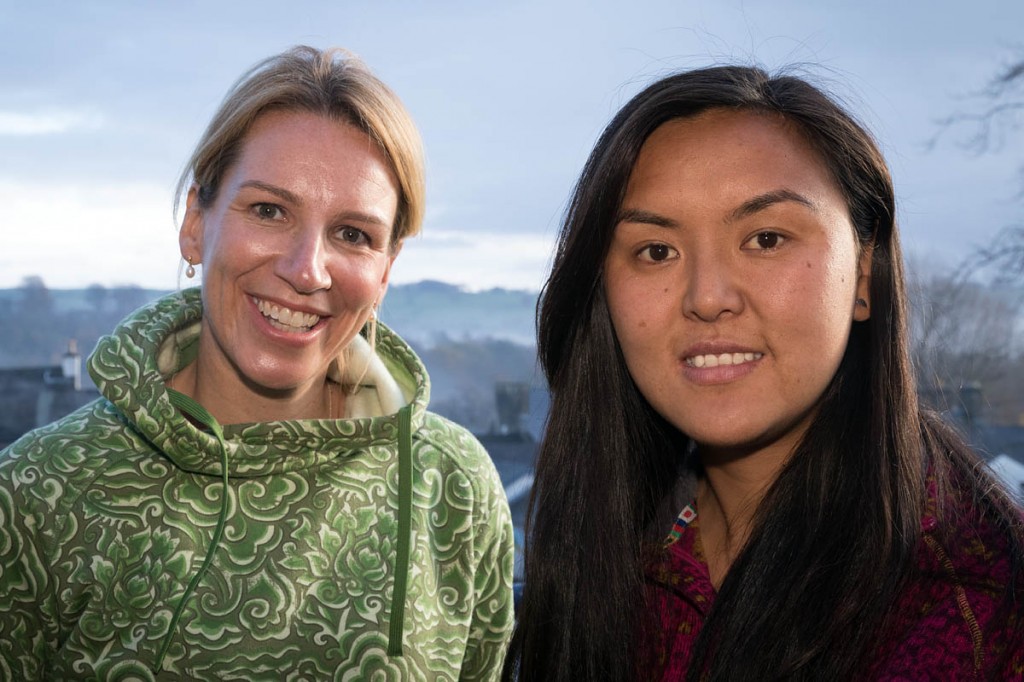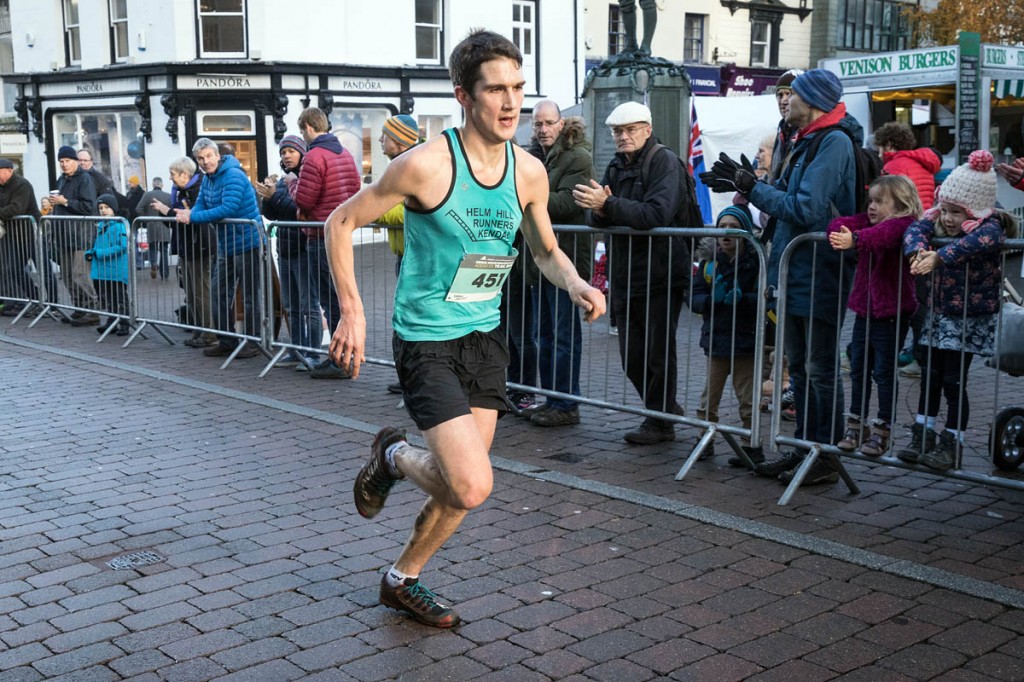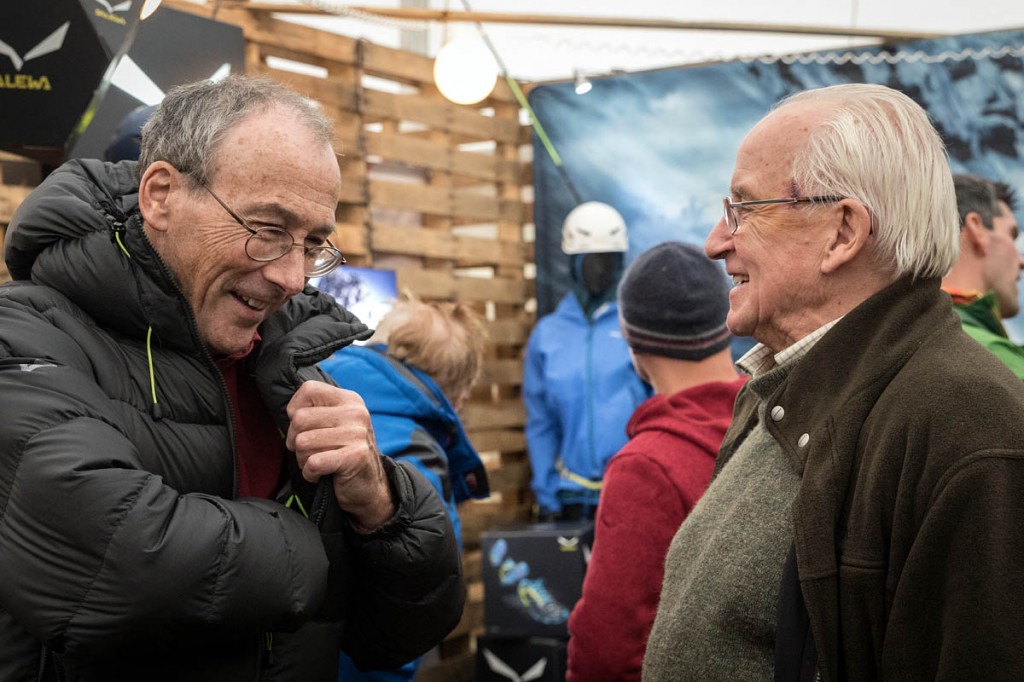Kendal Mountain Festival has established itself as one of the premier gatherings of outdoor folk in the country.
The four-day event in the Cumbrian town attracts thousands of visitors and encompasses outdoor pursuits as varied as trail running and mountain biking; hillwalking and outdoor swimming.
It is also the venue at which several awards are announced. On Thursday, Judy Whiteside’s book Risking Life and Limb, a history of the first 50 years of the Ogwen Valley Mountain Rescue Organisation, was announced winner of The Great Outdoors book of the year category. The same evening the British Mountaineering Council’s Mend Our Mountains crowdfunding appeal gained the campaign of the year in the competition.
The BMC’s president Rehan Siddiqui later spoke of the events of the year, including the controversial decision and subsequent climbdown by the council on plans to rename the organisation Climb Britain.
He said the campaign award was amazing news and had raised a total of £104,000 across eight mountain regions. Mr Siddiqui added the campaign had gained a significant amount of publicity on mainstream television and press.
He emphasised the BMC was working for hillwalking. “It’s a major part of what we do. Out access work goes unseen 24/7,” he said.
On sport climbing becoming an Olympic event, he said the council was working with Sport UK to find a sponsor for British athletes taking part in the event.
“The core work will not be compromised as a result of the Olympics. We’re dedicated to deliver on those key services.”
Mr Siddiqui admitted the Climb Britain fiasco had been difficult for the BMC. “Yes, some mistakes were made, but we’re a membership organisation and we listened to our members. We consulted and acted upon the desires of the members.”
A former BMC president Rab Carrington, who founded the Rab brand, announced the setting up the BMC’s Gallery of Mountaineering, an archive of digital images available to the public to view.
“At the moment we’ve got 440 from a variety of people. People in various clubs have been so generous in us using their archivists and sorting slides out.” The intention is to build up a collection going back 100 years of mountaineering events and personalities.
Rob Dyer, the BMC’s access and conservation officer for England, said the council was keen to emphasise the establishment of the England Coast Path, which he described as ‘super important’.
“I think a lot of people don’t appreciate how valuable it is. A lot of the crags and places to walk don’t have a legal right of way to access them, but this is putting a footpath all the way around England. But it’s also giving us access to ‘spreading room’ and the high tide mark so it’s giving us legal rights to most of the sea cliffs visited by climbers.”
Mr Dyer also revealed the BMC is in the process of buying a crag in the Yorkshire Dales from the national park authority. The sale of Cookrise Crag near Embsay in the South of the park is at an advanced stage, he said, and the council was on the lookout for local volunteers to help look after the site when the BMC takes it over.
The BMC has also teamed up with outdoors brand Lowe Alpine for a winter campaign.
Members of the public are being invited to share a winter picture via social media for a chance to win a Lowe Alpine rucksack.
The #MakeWinterCount campaign was launched at the Kendal Mountain Festival with a bothy party at which artist Tessa Lyons created an artwork on canvas, using visitors’ pledges made to try something new in the outdoors this winter.
Each month, a winner for the Lowe Alpine pack will be chosen from the campaign entries. At the end of the season, one person will be picked for the grand prize of a day out with mountaineer Andy Cave. Details are on the Lowe Alpine website.
A festival highlight was the account of Lukla-born mountaineer Pasang Lhamu Sherpa Akita’s climbing career and her experiences during last year’s Nepal earthquakes.
The 31-year-old climber, who is sponsored by Sherpa Adventure Gear, was chosen as National Geographic’s adventurer of the year for 2016.
Interviewed by Canadian climber Heather Geluk, she explained she set off to summit Everest aged 21 in 2007 and came down from her successful ascent a year older – the summit day coincided with her birthday.
The mountaineer, who has gone on to climb successfully Ama Dablam and K2, explained the difficulties for a woman taking up a career as a mountain guide in Nepal, a male-dominated industry.
There’s a prejudice against hiring women guides and when she was employed, she often found herself given the easiest tasks.
Yet in 2014 she realised her dream and summited K2, the ‘killer mountain’ in Pakistan, with two other Nepalese women.
Her husband had not taken kindly to the news she was going to attempt the world second-highest, and technically difficult peak. “It’s me or K2,” he told her, and it took months to persuade him she would be all right on the ascent.
Once on the mountain, Pasang said: “It was the hardest ice climbing of my life. There was lots of rock climbing, which deadened my crampons, so they didn’t work at all well on the ice after that.
“It took 31 hours to climb the final 600m. I got so emotional on the summit, which is unusual for me. All my friends were crying too.”
In 2015, both Pasang and Heather Geluk were in Nepal when the first earthquake struck. Pasang said she was with clients waiting for one of them to be evacuated out by helicopter when she felt the ground shake and saw a huge avalanche hit base camp.
She organised a rescue party to make its way to the camp despite being told to turn back by people fleeing the area. “But we carried on and got to base camp; it was a disaster. Some of my friends had been killed.
“I thought: mountaineering is not a good job; I should stay at home with my family.”
When it was realised the quake had hit a much wider area than the Everest region, with large parts of Kathmandu destroyed and remote communities left with no homes or shelter, both she and Heather Geluk organised aid for some of the villages, using porters to carry in food and aid, a cheaper and more efficient method than expensive and low-capacity helicopters.
Saturday saw the adidas KMF 10km Trail Run set off from the town, with 459 competitors tackling the route up to Scout Scar and back down into the finish on Kendal’s main thoroughfare.
The men’s race was won in a time of 37mins 58.7secs by Bowland Fell Runners member Chris Arthur, with Heidi Dent of Howgill Harriers fastest woman, finishing in 44mins 23.4secs.
Next year’s Kendal Mountain Festival will take place from 16-19 November.
